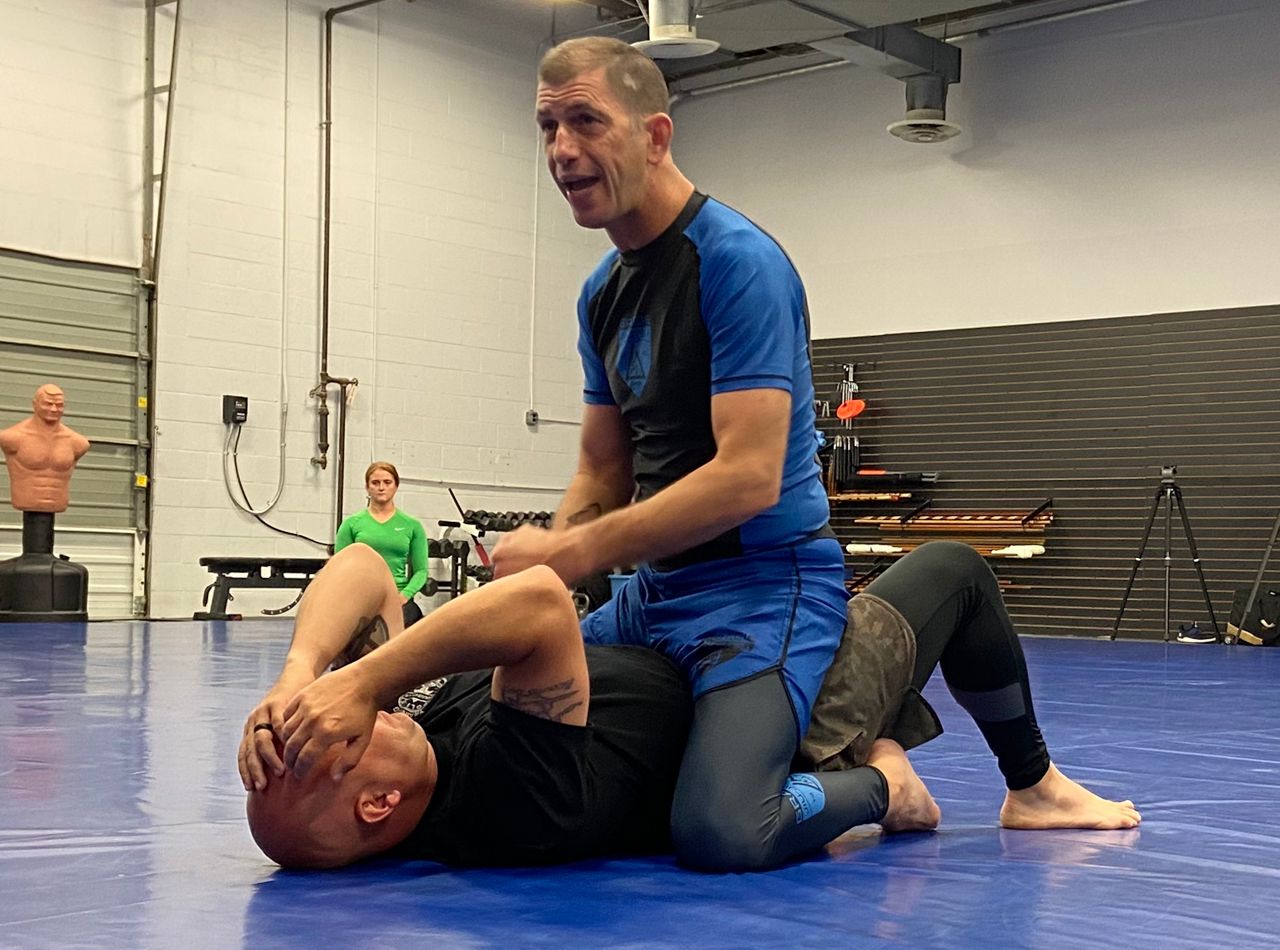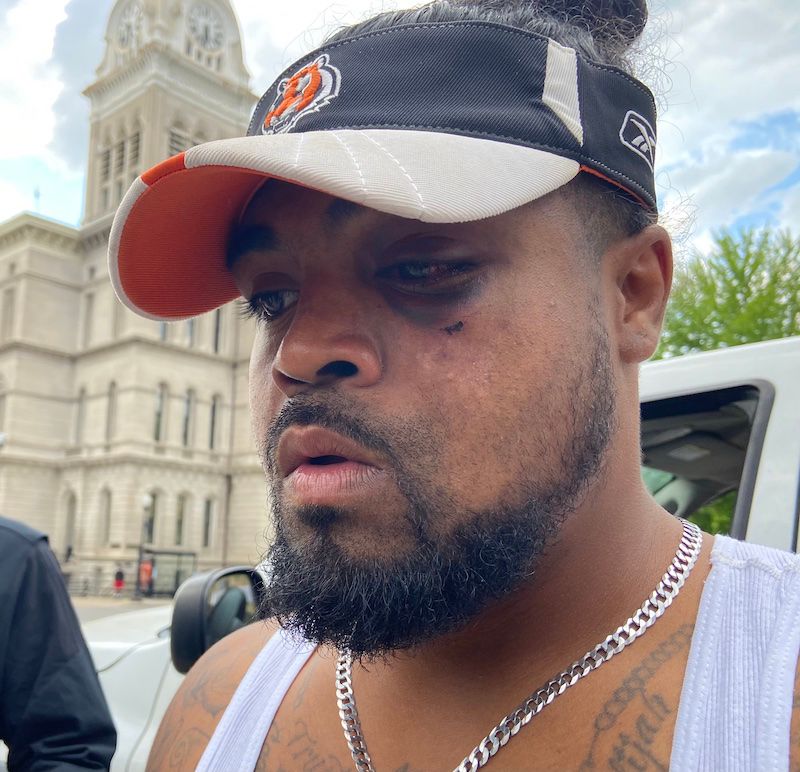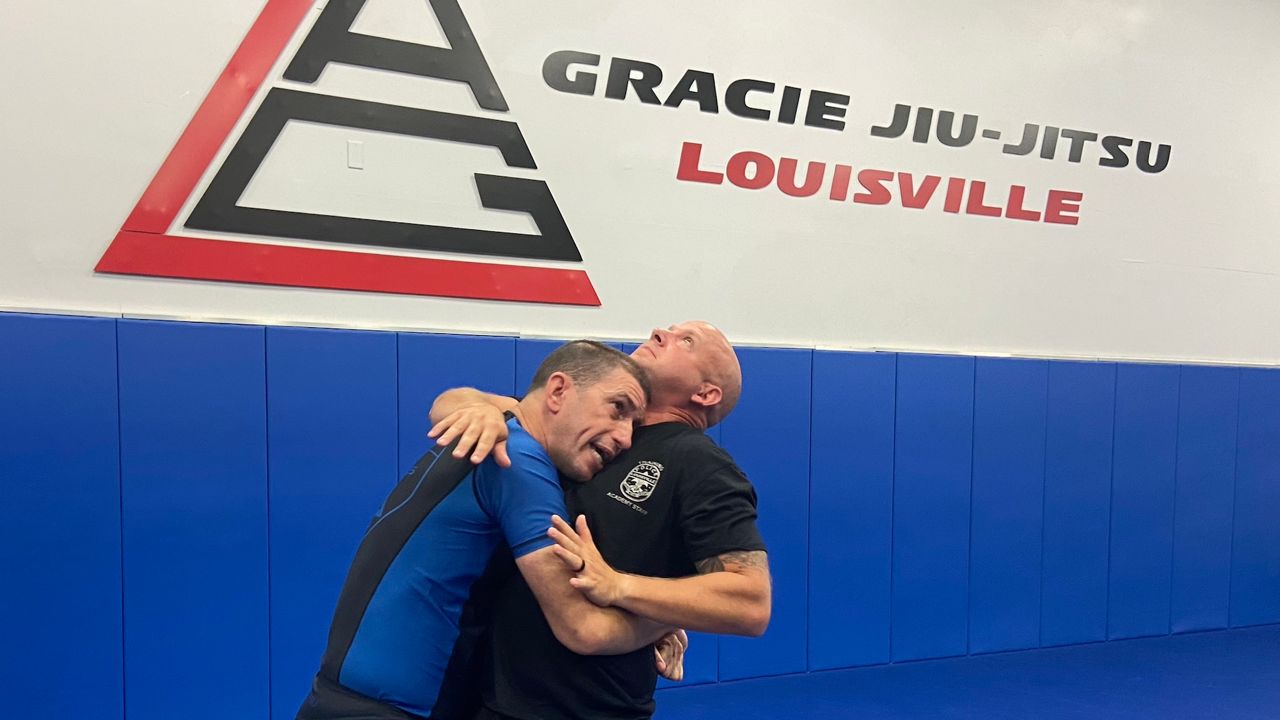LOUISVILLE, Ky. — Allan Manganello has practiced jiu-jitsu for 27 years and worked for the Louisville Metro Police Department (LMPD) for 20. For the past three years, he’s combined those interests, teaching defensive tactics based on Gracie jiu-jitsu at the city’s police academy. Now, he and Louisville's police chief are calling for more training.
Currently, officers receive 52 hours of defensive tactics training in the police academy. For years, that was it. “I didn’t get any new defensive tactics training for over 12 years," Manganello said.
That’s recently changed. Now, officers are required to spend eight hours each year training on “Gracie Survival Tactics,” which include ways to take control of combative suspects in a way that's safer for both the officer and the person being arrested. That's still not enough, Manganello told reporters this week.

“Officers need to train on a regular basis,” he said. “This is a perishable skill. We definitely need more training.” But Manganello said there are impediments to increasing training, including a lack of officers on the force, making it difficult to pull any of them off the street to spend time in the gym.
In a Metro Council hearing earlier this year, LMPD Chief Erika Shields endorsed the idea of providing more jiu-jitsu training to police officers. “A part of de-escalation is understanding how to put your hands on someone and make a quick arrest,” Shields said. “I’m a huge proponent of jiu-jitsu. If you have confidence in your physical abilities, you can de-escalate and close a situation out far quicker than if you don’t.”
Shields said she will push to allow officers to get reimbursed for pursuing training on their own.
The hope is that, with more training in jiu-jitsu, LMPD can follow the lead of the police in Marietta, Ga., where a similar program has reduced use of excessive force. According to data on the department's website, officers who participated in jiu-jitsu training saw a 48% reduction in injuries when making arrests, a 53% reduction in injuries to people being arrested, and a 23% reduction in Taser use, compared to their co-workers who did not participate in the training.
Manganello explained that officers who train in jiu-jitsu use techniques that are “a lot more humane” and “a lot more appealing to the eye."
But training officers with a form of martial arts is not what LMPD needs, said Antonio "T-Made" Taylor, a local activist and a member of the Civilian Police Review Board. "I want to see more things that are not around the realm of use of force, but more in the realm of de-escalation," Taylor said. "What a lot of us are saying is the solution to these problems is that we need better communication with LMPD and the community."
His opinion is in line with the findings from an LMPD review conducted by Hillard Heintze last year. The report said LMPD needs to better prioritize "effective communication and the establishment of relationships" with community members.
"The LMPD training mentions these elements, but they are taught as an afterthought to the physical tactics of de-escalation," the report said.
At the jiu-jitsu studio, which Manganello owns, he stressed that police officers aim to gain “voluntary compliance.” He insisted that they do not want to fight with people, but would rather “change a person’s mind about wanting to fight us.”

But he was hesitant to criticize officers who resort to more brutal tactics.
In April, Denorver “Dee” Garrett was arrested near Jefferson Square park in downtown Louisville for protesting in the street with a large wooden cross. Video of the arrest showed an LMPD officer striking Garrett repeatedly in the face, leaving him bruised and swollen.
“I don’t even blame the officer for doing that,” Manganello said. “What it makes me feel is how important it is to get the department training on a regular basis.”
Manganello did credit the focus on police misconduct across the country over the past year with clarifying the need to increase training and give officers other techniques to use in tense situations. But he also asked the public for patience and understanding. “We want to try to make the public’s expectation of us a little more reasonable, to see what we have to do out there,” he said.
Taylor said if LMPD is truly interested in fostering patience, understanding, and trust with citizens, it would have officers spend less time on jiu-jitsu and more time on communicating. "We're saying we want to talk to you," he said. "We don't want training for you to be able to put us in a hold."



